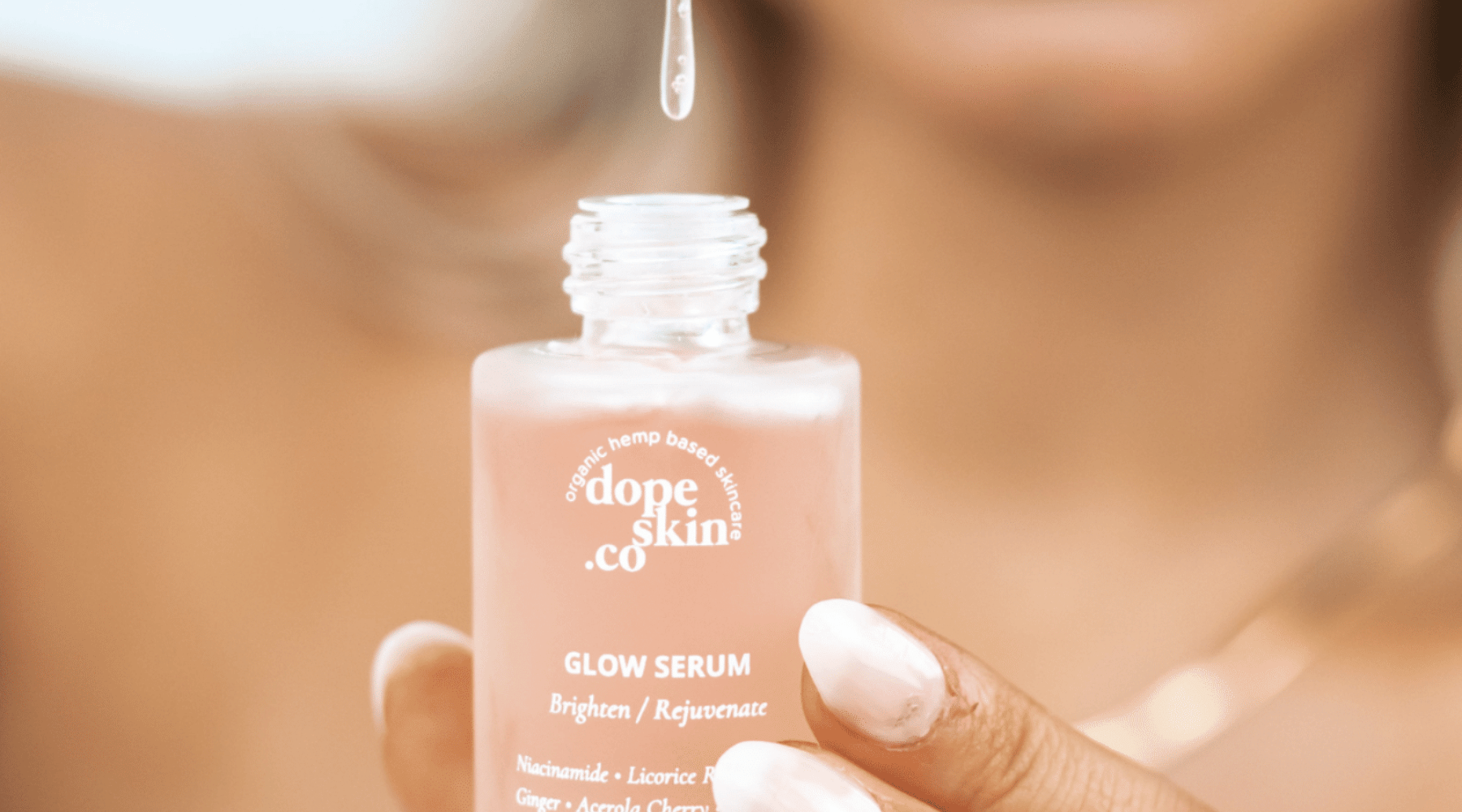
How to Fade Dark Spots and Hyperpigmentation: A Skincare Guide
Struggling with stubborn dark spots or uneven skin tone? You're not alone. Pigmentation issues like sun spots, melasma, and post-inflammatory hyperpigmentation are incredibly common, affecting people of all skin tones. But the good news is, there are effective ways to treat and fade these pesky discolorations.
At Dope Skin Co, we're passionate about helping our customers achieve their healthiest, most radiant complexions. That's why we're sharing our ultimate guide on how to fade dark spots and hyperpigmentation for good. Get ready to say goodbye to dull, uneven skin and hello to a luminous, even-toned glow.
Understanding Pigmentation
Before we dive into treatment methods, it's important to understand the different types of pigmentation and what causes them. Pigmentation refers to the discoloration or darkening of certain areas of the skin, and it can be triggered by a variety of factors.
Sun Spots
Also known as age spots or liver spots, sun spots are flat, brown spots that appear on sun-exposed areas of the skin, like the face, hands, and chest. These are caused by excessive sun exposure over time, which stimulates melanin production and leads to uneven pigmentation.
Melasma
Melasma is a common type of hyperpigmentation that appears as brown or gray-brown patches, typically on the cheeks, forehead, nose, and chin. It's often triggered by hormonal changes, such as during pregnancy or with certain medications.
Post-Inflammatory Hyperpigmentation
This type of pigmentation occurs after the skin has experienced inflammation, such as from acne, eczema, or even excessive exfoliation. The inflammation causes an overproduction of melanin, leading to dark spots.
Age Spots
As we get older, our skin's melanin production can become more uneven, leading to the appearance of flat, brown age spots. These are similar to sun spots but are not necessarily caused by sun exposure alone.
Prevention Strategies
While treating existing pigmentation is important, it's also crucial to take steps to prevent future discoloration. Here are some key prevention strategies:
Sun Protection
Shielding your skin from harmful UV rays is one of the most effective ways to prevent and minimize the appearance of dark spots and hyperpigmentation. Always use a broad-spectrum sunscreen with an SPF of 30 or higher, and reapply every two hours when spending time outdoors.
Avoiding Skin Irritants
Certain ingredients and products can cause inflammation and trigger pigmentation issues. Steer clear of harsh exfoliants, fragrances, and other potential irritants, and opt for gentle, nourishing formulas instead.
Maintaining a Healthy Lifestyle
Your overall health and wellness can also impact your skin's pigmentation. Eating a nutrient-rich diet, staying hydrated, and managing stress can all help keep your complexion even and radiant.
Treating Dark Spots and Hyperpigmentation
Now, let's dive into the various treatment options for fading existing dark spots and hyperpigmentation. From over-the-counter solutions to professional treatments, there are plenty of effective ways to achieve a more even, luminous complexion.
Over-the-Counter Treatments
Many skincare ingredients have been shown to be effective in treating pigmentation issues. Some of the most powerful over-the-counter options include:
- Vitamin C: This potent antioxidant inhibits melanin production and can help brighten and even out skin tone.
- Niacinamide: Also known as vitamin B3, niacinamide helps regulate melanin and reduce the appearance of dark spots.
- Alpha Arbutin: This natural skin-lightening agent works by inhibiting the enzyme that produces melanin.
- Kojic Acid: Derived from mushrooms, kojic acid is a gentle exfoliant that can help fade discoloration.
Prescription Treatments
For more stubborn cases of pigmentation, your dermatologist may prescribe stronger treatments, such as:
- Hydroquinone: This skin-lightening agent works by inhibiting the production of melanin, but it can be irritating for some skin types.
- Retinoids: Prescription-strength retinoids like tretinoin can help accelerate cell turnover and fade dark spots over time.
Professional Treatments
In addition to at-home solutions, there are also several professional treatments that can help tackle pigmentation issues, including:
- Chemical Peels: Gentle chemical exfoliants can help slough off the top layer of discolored skin, revealing a brighter, more even complexion.
- Microdermabrasion: This mechanical exfoliation treatment uses fine crystals to gently buff away the outer layer of skin, reducing the appearance of dark spots.
- Laser Therapy: Advanced laser treatments can target and break up concentrated areas of pigmentation for a more even skin tone.
Dope Skin Co's Approach to Fading Dark Spots
At Dope Skin Co, we believe in harnessing the power of nature to address pigmentation concerns. Our organic, hemp-based skincare solutions are formulated with a potent blend of active ingredients that work synergistically to fade dark spots and even out skin tone.
Key ingredients in our pigmentation-fighting products include:
- Vitamin C: Our stabilized, bioavailable vitamin C helps inhibit melanin production and brighten the complexion.
- Niacinamide: This skin-soothing vitamin regulates melanin and minimizes the appearance of discoloration.
Creating an Effective Skincare Routine
To effectively fade dark spots and hyperpigmentation, it's important to incorporate a targeted skincare routine into your daily regimen. Here's a step-by-step guide:
- Cleanse: Start by gently cleansing your skin to remove any dirt, oil, or impurities that could exacerbate pigmentation.
- Treat: Apply your pigmentation-fighting serums and treatments, such as vitamin C, niacinamide, or alpha arbutin.
- Moisturise: Lock in the active ingredients and hydrate your skin with a nourishing, non-irritating moisturiser.
- Protect: Don't forget to apply a broad-spectrum sunscreen to prevent further discoloration.
Remember, treating pigmentation issues takes time and consistency. Stick with your routine, and you'll start to see a noticeable difference in the appearance of your dark spots and an overall more even, radiant complexion.
Conclusion
Pigmentation concerns like dark spots and hyperpigmentation are incredibly common, but they don't have to be permanent. By understanding the different types of pigmentation, implementing prevention strategies, and incorporating targeted treatments into your skincare routine, you can achieve a brighter, more even-toned complexion.
At Dope Skin Co, we're dedicated to providing our customers with the tools and knowledge they need to tackle their pigmentation issues head-on. Explore our collection of organic, hemp-based skincare solutions and start your journey to a more luminous, confident complexion today.



